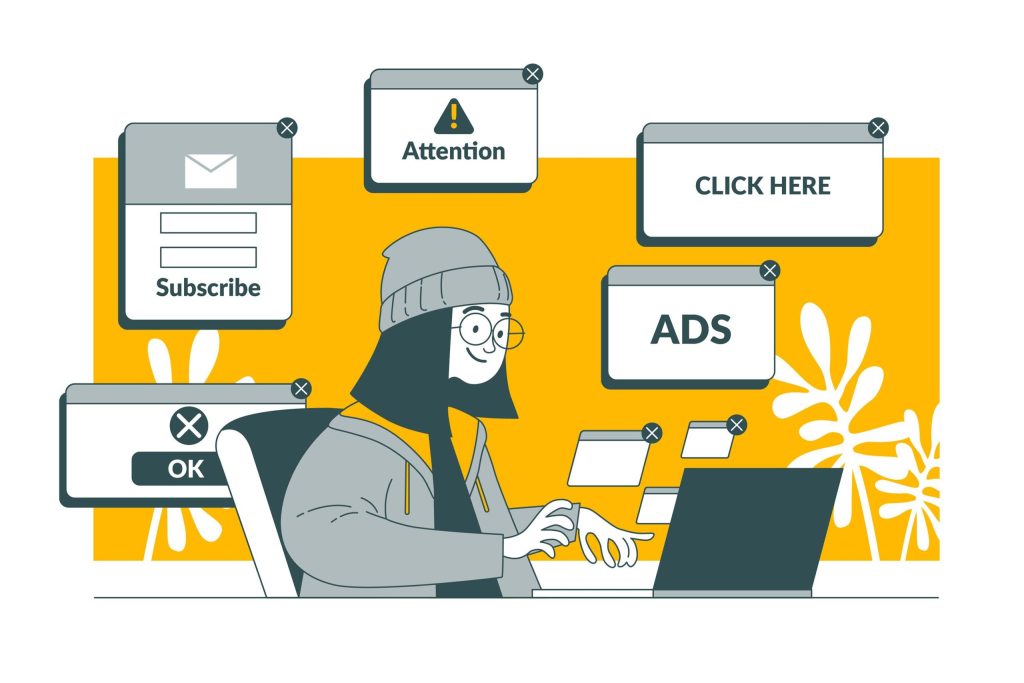Digital marketing has revolutionised the way businesses reach potential customers. Google Ads and Facebook Ads are two of the most popular choices among the numerous advertising platforms. Both offer unique advantages and challenges, making it crucial to understand the pros and cons of each to make an informed decision that aligns with your business goals. In this article, we will dive deep into the differences, advantages, and limitations of both Google Ads and Facebook Ads to help you choose the best advertising platform for your business.
Google Ads Overview
What is Google Ads?

Google Ads, formerly Google AdWords, is a paid advertising service offered by Google. It allows businesses to display ads on Google’s search engine results pages (SERPs) and across its vast network of partner websites (Google Display Network). Google Ads uses a pay-per-click (PPC) model, meaning advertisers pay each time a user clicks on their ad.
Google Ads includes several different ad types, such as:
- Search Ads: These ads appear at the top of the Google search results page when users search for specific keywords.

- Display Ads: These banner or image ads appear on websites that are part of the Google Display Network, targeting users as they browse other sites.

- YouTube Ads: Video ads that appear before or during YouTube videos.

- Shopping Ads: Product listings that appear on Google Search and Google Shopping.

How Google Ads Work
Google Ads operates on an auction system. Businesses bid on keywords related to their products or services, and Google determines the placement of ads based on a combination of bid amount and ad quality (Quality Score). When a user searches for a keyword related to your ad, your ad will be displayed, and you’ll only pay when someone clicks on your ad.
Pros & Cons of Google Ads
The table below clearly outlines Google Ads’ pros and cons, quickly comparing its advantages and challenges.
| Pros of Google Ads | Cons of Google Ads |
| High Intent Audience | Costly, Especially for Competitive Keywords |
| Google Ads targets users actively searching for a product or service, leading to higher conversion rates and more direct sales. | Google Ads can be expensive, especially when bidding on competitive keywords in industries like law, insurance, or finance. |
| Immediate Results | Requires Expertise in Keyword Research and Bidding |
| Ads appear instantly in search results, driving immediate traffic to your site. This is ideal for businesses seeking quick exposure and immediate leads. | Google Ads requires keyword research and management expertise to optimise campaigns effectively and avoid overspending. |
| Extensive Reach through Google’s Ad Network | Less Effective for Brand Awareness |
| Google’s Ad Network includes millions of websites, YouTube, and apps, increasing your visibility. | While Google Ads excels in driving direct sales, it is less effective for building long-term brand awareness than other platforms. |
| Targeting Specific arch Queries | Limited Targeting Options Outside of Search Behavior |
| Google Ads lets you target specific keywords, ensuring your ads reach users who are actively searching for your products or services. | Google Ads mainly targets based on search behaviour, with fewer targeting options compared to platforms like Facebook. |
Facebook Ads Overview
What is Facebook Ads?

Facebook Ads is an advertising platform that allows businesses to create targeted ads on Facebook, Instagram, Messenger, and the Audience Network. Facebook’s advertising ecosystem offers a range of options to engage users visually through various ad formats.
Facebook Ads can be highly customised to target specific groups of people based on factors like demographics, interests, and behaviours. Like Google Ads, Facebook Ads operates on a pay-per-click (PPC) or cost-per-impression (CPM) model, where you pay based on the number of impressions or clicks on your ad.
Facebook Ads include several different ad types, such as:
- Feed Ads: These appear directly in the user’s news feed on Facebook or Instagram.

- Story Ads: These full-screen ads appear within the stories section of Facebook and Instagram.

- Carousel Ads: You can showcase multiple images or videos in a single ad.

- Video Ads: These ads allow you to reach audiences with engaging video content.

- Lead Generation Ads: These ads allow businesses to collect information like emails directly within the platform.

How Facebook Ads Work
Facebook Ads leverage sophisticated targeting options based on user demographics, interests, online behaviour, and more. When you create an ad, you can choose who to target based on these factors, ensuring that your message reaches the right people.
Pros & Cons of Facebook Ads
This table outlines the pros and cons of Facebook Ads, allowing for an easy comparison of their benefits and challenges.
| Pros of Facebook Ads | Cons of Facebook Ads |
| Great for Brand Awareness and Customer Engagement | Lower Purchase Intent Compared to Google Ads |
| Facebook Ads are excellent for building brand awareness and fostering customer engagement. Businesses can build lasting relationships with their audience through engaging visuals, videos, and interactive content. | Facebook Ads may not drive immediate sales, as users are not actively searching for products. The purchase intent is generally lower than that on Google Ads. |
| Advanced Audience Targeting | Requires Creative and Compelling Visuals |
| Facebook offers advanced targeting options, allowing businesses to reach users based on demographics, location, interests, behaviours, and more. This precise targeting ensures ads reach the right audience. | Facebook Ads require visually appealing and engaging content to capture attention. Creative visuals and compelling messaging are essential for success, especially on a highly visual platform. |
| Cost-Effective for Small Budgets | Limited Control Over Ad Placement |
| Facebook Ads are more affordable than Google Ads, making them an excellent option for businesses with limited marketing budgets. Small businesses can run effective campaigns without overspending. | Facebook Ads are displayed within Facebook’s ecosystem, meaning you have limited control over where your ads will appear. You can choose placements like the feed or Stories, but Facebook controls the context. |
| Visual and Interactive Ad Formats | Challenges Reaching Older Demographics |
| Facebook provides various dynamic ad formats, such as carousel ads, video ads, and interactive story ads, which help businesses engage users creatively. | Facebook is popular among older generations, but younger audiences (Gen Z and millennials) are more active on platforms like Instagram and TikTok. Facebook Ads may not be the best fit if your target demographic is younger. |
Google Ads vs Facebook Ads: When to Choose Each of the Platforms
When to Choose Google Ads:

- When targeting high-intent users who are actively searching for your product or service.
- If you’re aiming for immediate sales and traffic.
- If you have a higher budget and are ready to invest in keyword research and bidding.
When to Choose Facebook Ads:

- When building brand awareness and engagement is your goal.
- If you want to target users based on demographics, interests, and behaviours.
- If you have a smaller budget and need cost-effective options.
- Depending on your business goals, both platforms can be highly effective. In some cases, businesses may use both platforms simultaneously, integrating Google Ads for immediate sales and Facebook Ads for long-term engagement.
Conclusion
Choosing the right advertising platform for your business depends on your goals, budget, and target audience. Google Ads offers high intent and immediate results, while Facebook Ads excels at building brand awareness and customer engagement. Many businesses succeed in using both platforms in tandem, creating a comprehensive advertising strategy that leverages the strengths of each.
Suppose you want to create a balanced digital marketing strategy. In that case, partnering with a team like Newnormz, a leading SEO and digital marketing agency, can help you navigate these platforms and optimise your campaigns. Newnormz specialises in crafting tailored marketing strategies to meet your specific needs, whether through Google Ads, Facebook Ads, or a combination of both. Let their expertise guide you toward success in the digital landscape.
Frequently Asked Questions
1. Which is better for immediate sales: Google Ads or Facebook Ads in Malaysia?
Google Ads are generally better for immediate sales because they target users with high purchase intent. When users search for a product or service on Google, they actively want to purchase it. This means Google Ads can drive immediate traffic to your website and increase conversions quickly.
On the other hand, Facebook Ads are more effective for building brand awareness and engagement but might not generate immediate sales as users aren’t actively searching for products. However, if used strategically with retargeting campaigns, Facebook Ads can drive sales.
In conclusion, Google Ads is the more practical option for businesses in Malaysia looking to generate immediate sales. At the same time, Facebook Ads are ideal for long-term brand building and customer engagement.
2. Can Google Ads Help With Organic Traffic?
Google Ads do not directly affect organic traffic as they are a paid form of advertising. However, they can drive immediate traffic to your website, complementing organic search efforts.
3. Are Facebook Ads More Cost-Effective Than Google Ads?
Facebook Ads are generally more cost-effective, especially for businesses with limited budgets. The cost-per-click (CPC) on Facebook Ads tends to be lower than Google Ads, particularly in highly competitive industries.
4. What Are The Restrictions For Google Ads?
Google Ads doesn’t allow ads that promote:
- Illegal products or services (like drugs or counterfeit goods).
- Harmful or dangerous content (such as violence or discrimination).
- Misleading or deceptive content (like false claims or scams).
- Adult content (in specific contexts).
- Inappropriate content (like hate speech, harassment, or explicit material).






